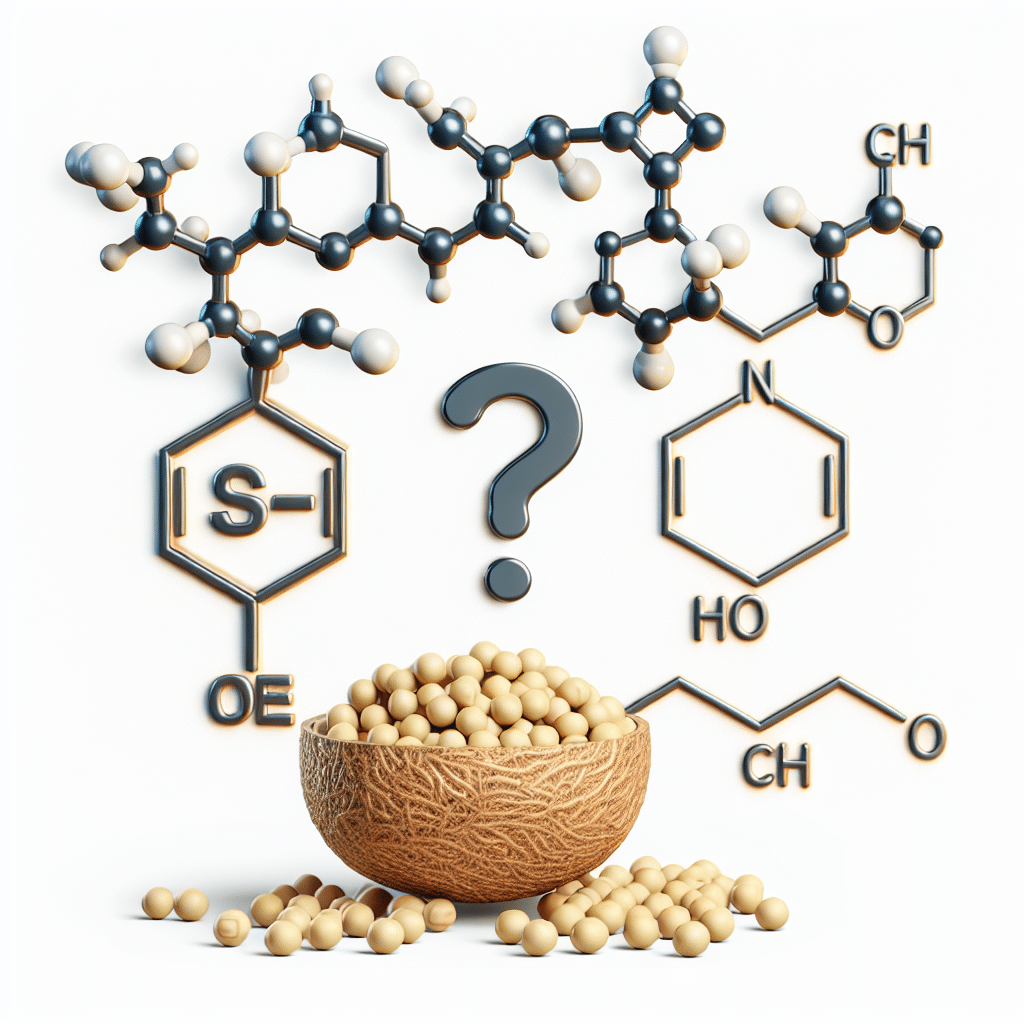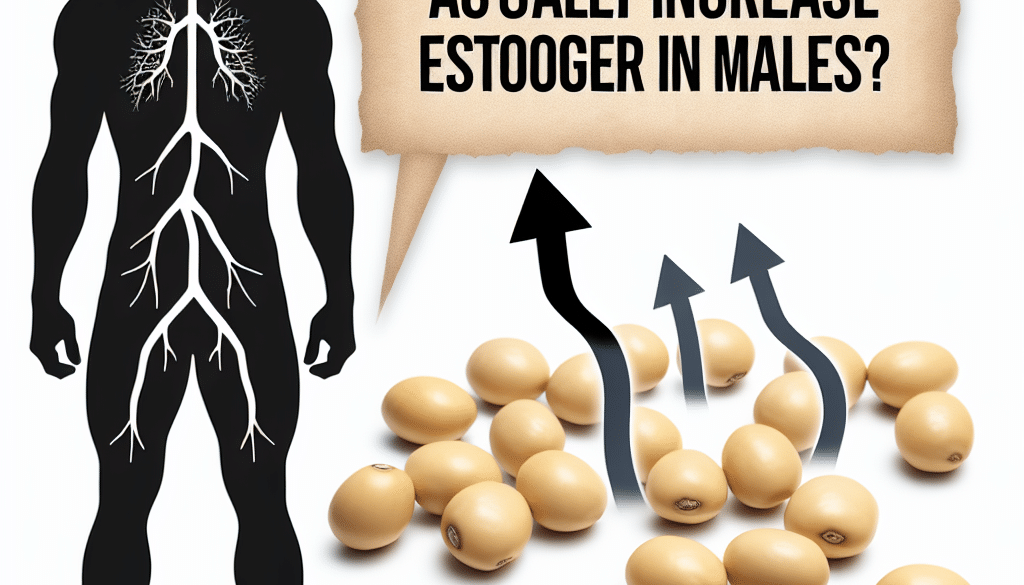Does Soy Actually Increase Estrogen In Males?
-
Table of Contents
- Soy and Estrogen Levels in Males: Unraveling the Truth
- Understanding Soy and Its Components
- The Estrogenic Effects of Isoflavones: Myth or Reality?
- Case Studies and Clinical Trials
- Understanding the Role of Diet and Hormonal Health
- Addressing Misconceptions and Fears
- Conclusion: The Verdict on Soy and Male Estrogen Levels
- Enhance Your Diet with ETprotein’s High-Quality Protein Products
Soy and Estrogen Levels in Males: Unraveling the Truth

For years, soy has been a staple in many diets around the world, lauded for its health benefits and versatility as a protein source. However, it has also been the subject of controversy, particularly regarding its effects on male hormone levels. One of the most persistent concerns is whether the consumption of soy products can lead to an increase in estrogen levels in males, potentially affecting their health and hormonal balance. This article delves into the scientific evidence to address this question and provide a clear understanding of the relationship between soy and male estrogen levels.
Understanding Soy and Its Components
Soybeans contain a group of natural compounds known as phytoestrogens, which are plant-derived xenoestrogens not generated within the endocrine system but consumed by eating phytoestrogenic plants. The most notable phytoestrogens in soy are isoflavones, which have a chemical structure similar to that of the human hormone estrogen. This similarity has led to concerns that isoflavones could mimic estrogen in the body, potentially leading to hormonal imbalances in males.
The Estrogenic Effects of Isoflavones: Myth or Reality?
Several studies have investigated the potential estrogenic effects of isoflavones on male hormone levels. The majority of this research indicates that soy consumption does not significantly affect the levels of estrogen in males. For instance:
- A meta-analysis published in Fertility and Sterility reviewed 15 placebo-controlled treatment groups and found that soy products do not significantly affect the total testosterone levels or free testosterone levels in men.
- Another study in the Journal of the American Dietetic Association concluded that neither soy foods nor isoflavone supplements alter measures of bioavailable testosterone concentrations in men.
These findings suggest that the phytoestrogens in soy do not function in the same way as human estrogen when consumed as part of a balanced diet.
Case Studies and Clinical Trials
Case studies and clinical trials provide valuable insights into the effects of soy on male estrogen levels. For example:
- A clinical study published in Cancer Epidemiology, Biomarkers & Prevention followed a group of men at high risk for prostate cancer and found that consuming a soy protein supplement did not increase their estrogen levels.
- In a randomized, double-blind, placebo-controlled study, researchers observed no significant hormonal changes in men consuming soy protein isolate for a duration of 57 days.
These studies reinforce the notion that moderate soy consumption is unlikely to disrupt male hormonal balance.
Understanding the Role of Diet and Hormonal Health
While focusing on soy’s potential effects on estrogen levels, it’s essential to consider the broader context of diet and hormonal health. A balanced diet that includes a variety of protein sources, such as meat, dairy, legumes, and grains, is crucial for maintaining hormonal equilibrium. Overconsumption of any single food, including soy, could potentially lead to health issues, but this is not unique to soy or its phytoestrogen content.
Addressing Misconceptions and Fears
The fear that soy increases estrogen levels in males may stem from anecdotal reports and a misunderstanding of the science. It’s important to differentiate between the effects of phytoestrogens and the body’s endogenous estrogen. The evidence suggests that phytoestrogens have a much weaker effect than the estrogen naturally produced by the human body.
Conclusion: The Verdict on Soy and Male Estrogen Levels
In conclusion, the preponderance of scientific evidence indicates that soy consumption does not increase estrogen levels in males. The isoflavones found in soy appear to have a minimal impact on male hormonal balance when consumed as part of a varied and balanced diet. Men can enjoy soy products without fear of disrupting their hormonal health, benefiting from the high-quality protein and other nutrients that soy provides.
Enhance Your Diet with ETprotein’s High-Quality Protein Products
If you’re looking to diversify your protein intake, ETprotein offers a range of organic bulk vegan proteins that are an excellent addition to any diet. Their products, including organic rice protein, pea protein, and various seed proteins, are characterized by a neutral taste, non-GMO, and allergen-free attributes. With L-(+)-Ergothioneine purity over 98%, ETprotein caters to industries such as nutraceuticals, pharmaceuticals, and food and beverage, ensuring you receive the highest quality protein supplements.
About ETprotein:
ETprotein, a reputable protein and L-(+)-Ergothioneine (EGT) Chinese factory manufacturer and supplier, is renowned for producing, stocking, exporting, and delivering the highest quality organic bulk vegan proteins and L-(+)-Ergothioneine. They include Organic rice protein, clear rice protein, pea protein, clear pea protein, watermelon seed protein, pumpkin seed protein, sunflower seed protein, mung bean protein, peanut protein, and L-(+)-Ergothioneine EGT Pharmaceutical grade, L-(+)-Ergothioneine EGT food grade, L-(+)-Ergothioneine EGT cosmetic grade, L-(+)-Ergothioneine EGT reference grade and L-(+)-Ergothioneine EGT standard. Their offerings, characterized by a neutral taste, non-GMO, allergen-free attributes, with L-(+)-Ergothioneine purity over 98%, 99%, cater to a diverse range of industries. They serve nutraceutical, pharmaceutical, cosmeceutical, veterinary, as well as food and beverage finished product distributors, traders, and manufacturers across Europe, USA, Canada, Australia, Thailand, Japan, Korea, Brazil, and Chile, among others.
ETprotein specialization includes exporting and delivering tailor-made protein powder and finished nutritional supplements. Their extensive product range covers sectors like Food and Beverage, Sports Nutrition, Weight Management, Dietary Supplements, Health and Wellness Products, and Infant Formula, ensuring comprehensive solutions to meet all your protein needs.
As a trusted company by leading global food and beverage brands and Fortune 500 companies, ETprotein reinforces China’s reputation in the global arena. For more information or to sample their products, please contact them and email sales(at)ETprotein.com today.














